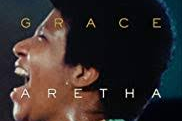Amazing Grace
Amazing Grace, released in the UK later this month, tells the little-known story of William Wilberforce and his fellow campaigners' heroic fight to end slavery.
By the mid 18th century, there were more than 11 million Africans in the West Indies, and Great Britain was the superpower of slave traders. Any call to end the trade seemed as mad as someone now suggesting we stop using the combustion engine. The anti-slavery lobby were considered an eccentric bunch - most of them Quakers, Evangelical Anglicans or long haired radicals.
Played by Ioan Gruffudd, William Wilberforce is an intense young man who annoys everyone else by being both moral and right. At the start of the film we see him leaping out of carriage to tell someone to stop beating a horse.
At 24, Wilberforce is encouraged to become an MP by his college friend William Pitt the Younger, played by Benedict Cumberbatch. At that time he is still deliberating on whether to go into the Church, but a mentor, Rev John Newton, played by Albert Finney, persuades him otherwise. "You can serve God better by becoming a politician," he tells him.
Newton - the composer of the hymn Amazing Grace - was a slave trader himself for many years, until a conversion experience lead him to become a clergyman and devote the rest of his life to preaching against slavery in his London church.
Wilberforce takes his advice and begins to rail against slavery in the House of Commons to peeved, bored peers who have too much invested in the practice. "Doesn't he know the dangers of talking sense in this place? " mutters someone.
The conditions on the slave ships are hideous but business is so good no one wants to hear about them.
Together with his collaborators he forces the issue with clever PR stunts like diverting lords and ladies out for a pleasure cruise past a recovered slave ship. "That smell is the smell of death; breathe it in!" he bellows. Wedgewood produces a badge with the image of a Negro and the caption: 'am I not your brother too' which becomes the latest fashion accessory. He unnerves a group of MPs drinking in a pub by jumping on a table and singing Amazing Grace.
At one point Wilberforce dramatically flings an anti slavery petition bearing 400,000 names across the floor of the Commons.
There are glimpses of Wilberforces' unconventional home life throughout the movie. He shares his house with homeless waifs and strays as well as a menagerie of injured animals. (Among several charities he also founded the RSPCA)
It took more than 27 years for the anti-slavery campaign to win through and Wilberforce suffered severe ill health for much of that time. The film charts the ups and downs of the struggles set against epic events in Europe. A distinguished cast includes Michael Gambon as Lord Charles Fox and Rufus Sewell as an anarchic abolutionist. Senegalese singer Youssou N'Dour makes an impressive acting debut as Oloudaqh Equiano, the freed slave turned writer who served as Exhibit A against slaver. There's a love interest, too: Barbara Spooner (Romola Garai), a lifelong activist who forms a happy meeting of mind and soul with this man who prefers meeting with God in a field instead of a church.
Amazing Grace is a period epic and a saint's progress, but mostly it's a debate on the old subject of Christian faith versus Christian works. The movie soberly testifies to a man who felt that belief without acts is the worst sort of hypocrisy and who kept pushing until the rest of his country gave in.
first posted LONDON - 5 March 2007 - 420 words


















